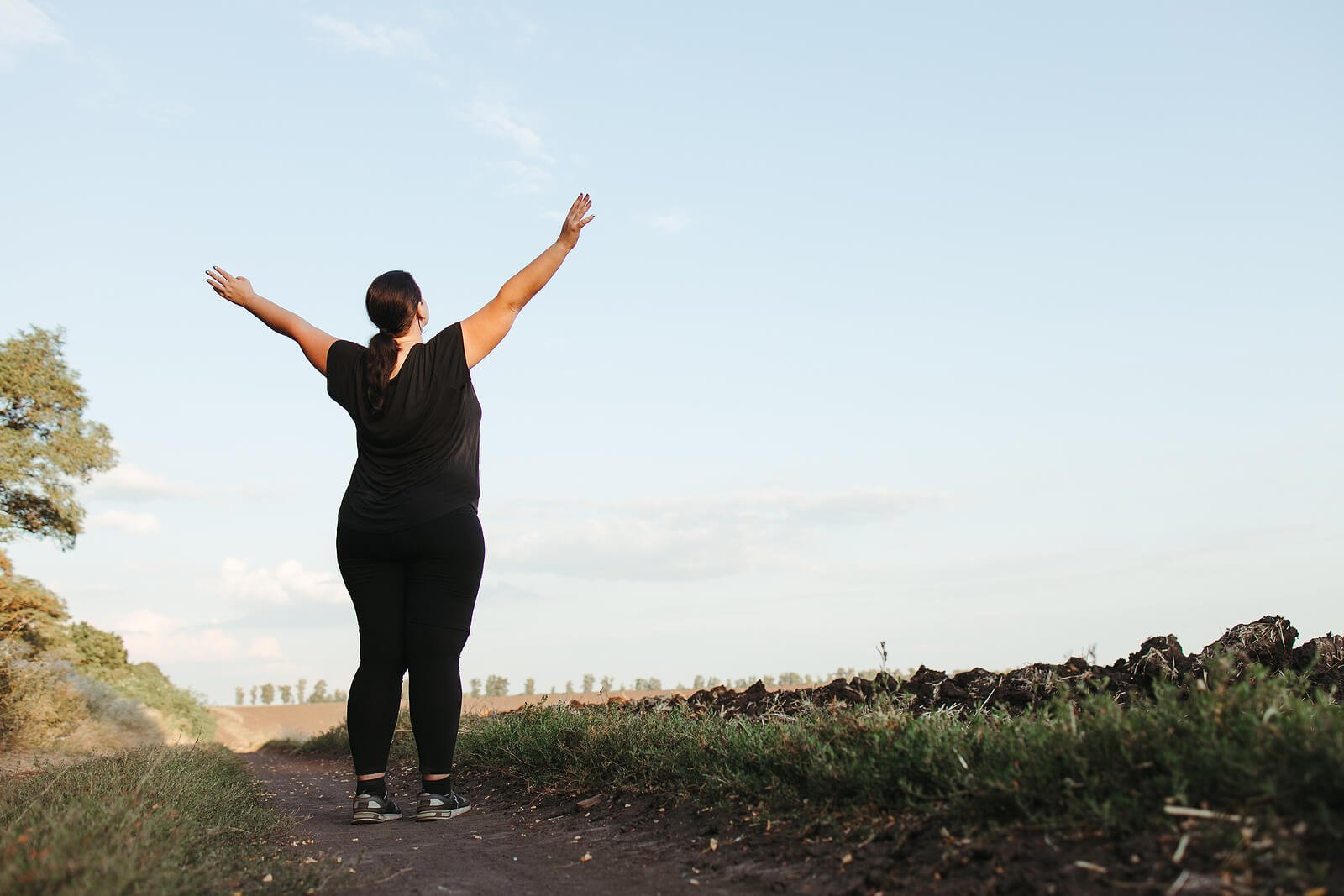What do you think of when you hear the term exposure therapy? Maybe you've never heard it before and it just sounds scary. Or maybe you have heard about it and you picture a claustrophobic person being forced to get in an elevator. Let's explore what it really is and clear up some misconceptions.
What is Exposure Therapy?
Exposure therapy is a type of cognitive behavioral therapy (CBT) that's used to treat certain phobias, OCD, and other specific anxieties. It involves gradually exposing yourself to the source of your fear or anxiety in order to overcome it. It is a systematic method based on research, not a ruthless or sadistic approach to facing fears.
Exposure therapy is done both during therapy sessions with a therapist, as well as on your own outside these sessions in real-life situations. For example, if you have social anxiety, your therapist might ask you to start with a social activity you can do that is about a 2 or 3 out of 10 on the anxiety scale.
How Does Exposure Therapy Work?
Exposure therapy involves gradually exposing yourself to the things you fear, so that your brain learns to tolerate and reduce its response to them.
Exposure therapy is typically done in one-on-one sessions with a therapist who will help you come up with an exposure hierarchy--that's a list of all the ways in which you might be able to face your fears (from least intense to most intense). You'll work through this hierarchy by starting at the bottom and working up until you're comfortable facing whatever it is that has been scaring or worrying you. You might never get to the most intense fear, and that's ok! Through this process called "desensitization," the brain eventually learns not to fear the things that we were once scared of.
Part of exposure therapy is accepting that there will be some anxiety when you face these situations, but your therapist will help you learn tools to face that anxiety and work with it. Over time your brain will learn that your fears don't come true and your anxiety will lessen.
Is Exposure Therapy Effective?
Exposure therapy works. It's an effective treatment for many people with phobias, OCD, generalized anxiety, social anxiety, and PTSD. The research shows that when applied correctly, exposure therapy is an effective treatment.
If you're thinking about trying exposure therapy, make sure that your therapist is qualified and experienced with the technique. You should feel comfortable in your relationship with your therapist, and you should never feel pressured or pushed too hard when doing exposure.
Will I Be Forced to Face My Biggest Fear?
No, you will not be forced to face your biggest fear. You will be guided through the process and encouraged to face your fears slowly. This is because it's important that you are in control of the process, and have time to build up incrementally with each step. If someone forced you into a situation where your biggest fear was right there in front of you, that would likely cause an overwhelming amount of anxiety which is not actually helpful in exposure. Slowly working through the steps and learning tools to deal with anxiety along the way makes it so that your anxiety lessens over time. You may even find that by the time you get to the top of the hierarchy, it's not even that scary anymore. On the other hand, you may never face your biggest fear because it just might not be realistic or necessary.
What is Exposure Therapy Most Effective For?
Exposure therapy is most effective for anxiety disorders and phobias. It can be used to treat PTSD, OCD, specific phobias, social anxiety, and generalized anxiety. Exposure therapy has been shown to work best when done with a trained professional who knows how to use it properly.
Anxiety typically involves what we call "safety behaviors"- these are any attempts we make to avoid an internal or external experience and gain short-term relief, at the expense of anxiety getting worse in the long run. Some examples might include avoiding social gatherings if you have social anxiety, drinking to make feelings go away temporarily, washing your hands excessively to avoid germs, or not flying because you are afraid of planes. Wherever we find safety behaviors, exposure therapy can be effective.
How Do I Start Exposure Therapy?
So, does exposure therapy work? In short, yes. It's been proven to be effective in treating a wide range of anxiety disorders and phobias. The key is finding the right therapist for you and your specific needs. If you're feeling overwhelmed by fear or anxiety, consider reaching out to us and booking a free consultation!
Begin Exposure Therapy & Anxiety Treatment in Asheville, NC
Learning to cope with and overcome phobias is much easier said than done. Our team would be happy to offer support as you work to manage anxiety triggers. Our team of caring therapists would be honored to support you with in-person and online therapy services. We are happy to offer support from our Asheville, NC-based practice. You can start your therapy journey, by following these simple steps:
Meet with a caring therapist
Start working with a professional to face your fears!
Other Services Offered with Strive On Counseling
The team at Strive On Counseling knows that you may experience more than one mental health concern in addition to anxiety. This is why we are happy to offer many forms of therapy. These services include individual counseling, EMDR trauma therapy, therapy for men’s issues, mindfulness, Buddhist counseling, cognitive behavioral therapy, teletherapy / online therapy. Other services offered include guided meditations, supplements, a list of books and other useful resources, and online courses. If you would like more information about any of these services, please reach out today, and start doing therapy in North Carolina!




